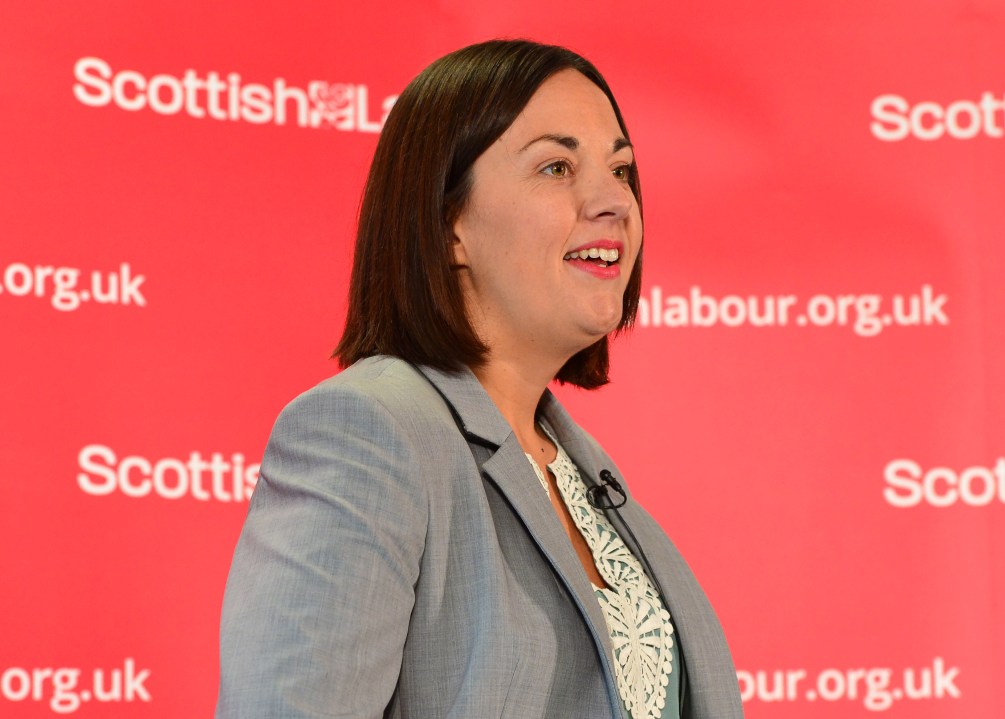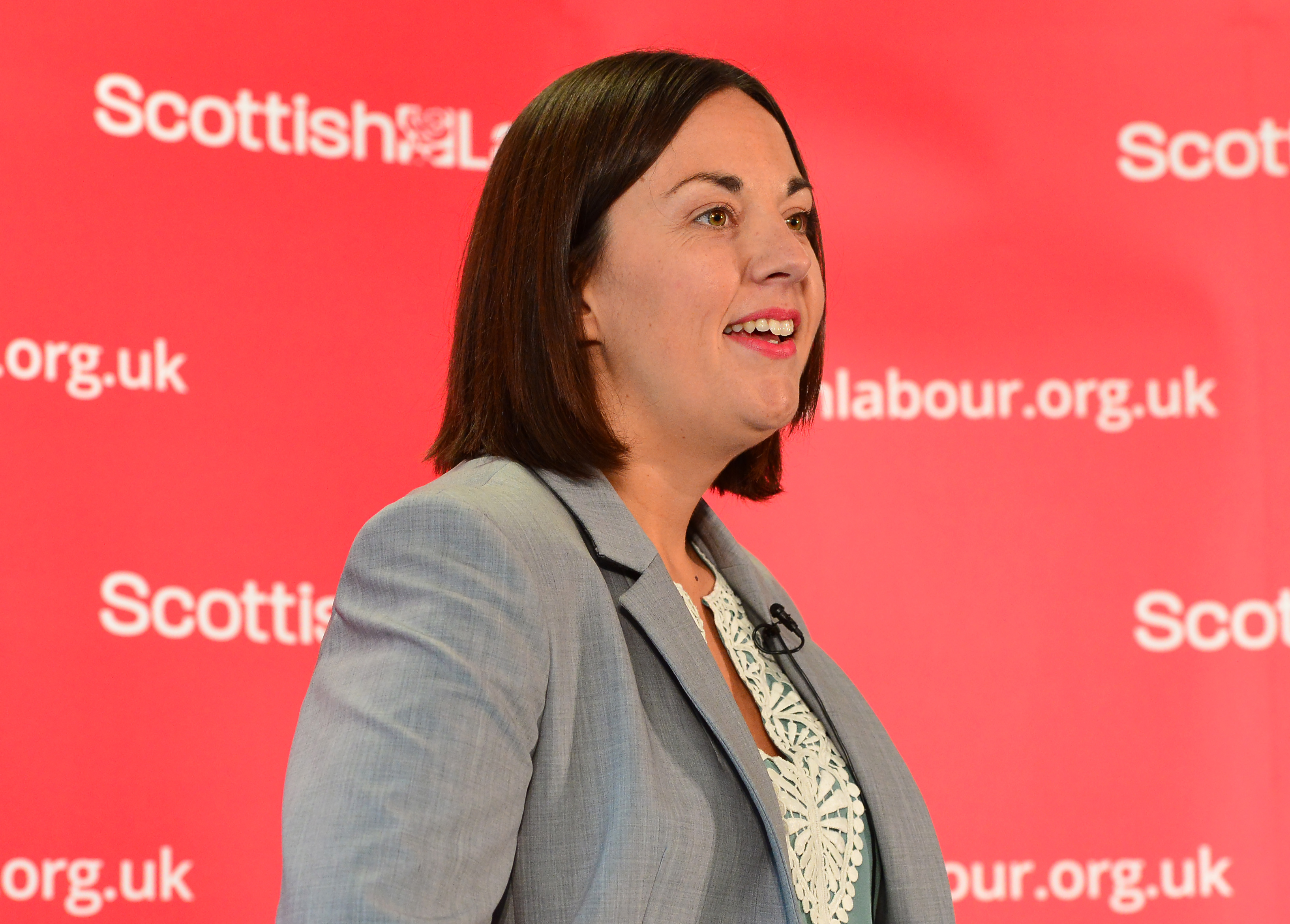Last week Kezia Dugdale, the leader of the Scottish Labour party, ventured south to the Imperial capital to brief the shadow cabinet on her party’s prospects in the forthcoming elections to the Scottish Parliament. Lucky her.
According to the New Statesman’s George Eaton, Dugdale’s presentation was greeted with great enthusiasm. It was, one member of the shadow cabinet declared, ‘brilliant’ while another said Dugdale had ‘blown away’ her South British colleagues. Ominously, Eaton reported that ‘After loudly applauding her, frontbenchers left vowing to do more to help their colleagues north of the border (at least one shadow cabinet minister will visit each week)’.
To which the only sensible response is, Jeez, hasn’t Kezia suffered enough already? The very last thing she needs is Andy Burnham popping over the border. To say nothing of the members of the shadow cabinet of whom no-one has ever heard.
What is the point of the Scottish Labour party? That is the question Dugdale must answer. Today, for perhaps the first time since she inherited that grim chalice from Jim Murphy, she began to provide an answer.
Scottish Labour will increase income tax.
Well, they won’t actually since no-one expects Labour to be anywhere near power in May but that’s not the point. (If they were on course to win the election, of course, they might not advocate increasing income tax. Why take the risk? So even Labour’s bigger ideas are really a reflection of the desperate state in which the party finds itself.)
No, the point is that Labour have to differentiate themselves from the SNP. Promising a penny on income tax for everyone is one way of doing that. True, anyone earning less than £20,000 will receive, via their local authority, a ‘rebate’ of £100, enough to ensure that a taxpayer earning the minimum wage will be £1 a week better off. Even so, most taxpayers will pay more.
Labour find themselves in the same position as the Liberal Democrats. Each party is seeking a hearing and struggling for relevance. It is not at all a coincidence that each has hit upon the same wheeze of raising income tax. If nothing else this is a reminder that the natural divide in Scottish politics, at least when it comes to fiscal matters, puts Labour and the Lib Dems on the left against the Tories and the SNP on the right.
Labour’s move is less about winning votes than about political positioning. The dirty little truth about Scottish politics is that, apart from the constitution, Labour and the SNP do not actually disagree on very much. There is a difference of emphasis, for sure, but in general the two parties spring from the same source and share the same worldview. On health and education, in particular, there is almost no difference between them.
But now there is on tax. Labour will, they say, counter ‘Tory austerity’ by raising taxes, the better to pay for government services. The SNP, meanwhile, will simply whine about ‘Tory austerity’ while insisting there is nothing that can be done about it. Councils will just have to eat their cereal.
It’s a gamble, of course, not least since there is no evidence as yet that Scots are actually happy with the idea of paying more tax. This remains the case no matter how often someone tries to persuade you we’re all closet Norwegians. The middle-classes, in particular, have benefitted from SNP policies such as freezing council tax and providing ‘free’ university tuition (a policy which ensures that the poor and those who do not go to university pay more of the cost for those that do). Unsurprisingly, the affluent middle-classes rather like this. But it is not necessarily ‘progressive’ no matter how often the SNP insist it is.
So Labour now have an argument and even, perhaps, the beginning of a ‘narrative’. It gives them something to talk about and that’s worth something too. That something won’t work is not necessarily a reason not to do it.
Meanwhile, the SNP are in the ostensibly ludicrous position of arguing that full fiscal autonomy – the proposal they submitted to the Smith Commission – would be entirely affordable but a 1p increase in income tax is not. This is an interesting position to hold since FFA would have cost at least £7bn and a 1p increase in income tax will bring in something like £500m.
Then again, the SNP remember how their own ‘Penny for Scotland’ (a fair exchange rate, as wags put it) proved unpersuasive when they argued for increased taxes in 1999. Different times, of course, but the nationalists have been cautious on fiscal matters ever since.
It is true, as Aidan Kerr says, that Labour’s positioning now seems to be chasing left-wing, working-class, Scots who have largely already abandoned the party at the expense of middle-class Unionists who might still be persuaded to stick with it. But Labour has to do something, has to offer some alternative, and even a dubious alternative is preferable to doing nothing and waiting for the axe to fall.
Promising to increase income tax will not lose Labour this election. That’s going to happen anyway. But it at least allows them to have some sport with the contradictions in the SNP’s own rhetoric and positioning. It gives Labour something to say and as the Scottish Tories have discovered, keeping quiet in the hope people will stop kicking you is not an approach that pays any kind of dividend.
The Tories, meanwhile, will welcome Labour’s proposal. Are you middle-class and Unionist? Come and vote for the only party that is unabashedly Unionist and the only party that thinks you already pay enough of your salary to the government.
That has the advantage of being an honest position. The SNP, meanwhile, continue to argue you can combine high-spending with low taxation. Anything disagreeable can be blamed on London and all problems can be wished away by pointing to the independence unicorn that would melt all difficulties. That has proven a winning formula but it’s not one you would necessarily call honest.








Comments